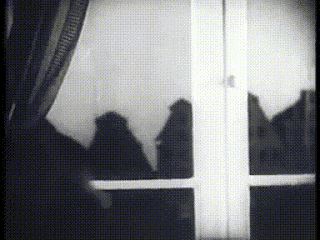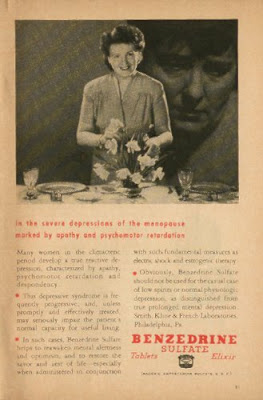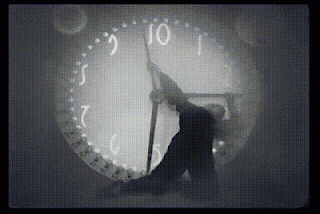Glen Allen remembered in his own words
Blogger's note. Tomorrow, September 10, is World Suicide Prevention Day, though it seems that almost nobody knows about it or pays it much mind. Certainly the internet has been virtually silent about it, while posting millions of responses to a video by an obnoxious blonde screaming about "fat shaming". Mental health shaming is an invisible, silent thing, though it registers on sufferers like an ice pick to the solar plexus. The reason no one mentions it is that it is considered unremarkable and even normal. It just does not register anywhere.
When I woke up today I remembered this piece. It was something I had seen before, reproduced on someone else's blog. I knew Glen Allen. We never met face-to-face, but we wrote to each other regularly for ten years while he went through storms that I can only imagine. How he functioned as well as he did, for as long as he did, is remarkable, a fact that is almost never taken into account with (and how I hate the term) the "mentally ill".
After being out of touch for years, I learned Glen's fate in 2005, when I was at the apogee of my own storm: I opened my daily paper and saw his picture under the obituaries. Having just taken a massive overdose, he had wandered out of a psychiatric ward in Toronto and passed out beside the railroad tracks in sub-zero December. How people die says something about the way they lived, and it struck me as oddly apropos that he died like some of the street people he understood and loved so well.
What I didn't know, because he never told me, is that he wasn't just a newspaper reporter but an award-winning print journalist for Maclean's Magazine, war correspondent, English teacher in China, volunteer in mental health services, producer for CBC's national radio show Morningside, and no doubt many other things he didn't think significant enough to mention.
This piece is very long, but I run it here without edits. Without a doubt, it is the best piece on depression, bipolar disorder and mental illness in general that I have ever read, and it is typical of Glen that he generously shared it even while struggling with his own recovery. Even in the throes of a consuming illness, Glen Allen had a certain unmistakeable quality of grace.
(The following story appeared in the New Brunswick Reader on June 19.
1999, under the headline
Angels of Madness. Glen Allen was found frozen
to death last week in Toronto.)
By Glen Allen
The anesthetist, head swathed in a surgeon's fez, plunges the needle in
a ready vein and leans over and says, "You'll smell the smell of garlic
and then you'll be out."
And out I am in this fourth of a series of eight shock treatments on
the psychiatric wing of the Saint John Regional Hospital. While I'm
unconscious, a nurse places two electrodes on my skull and the attending
psychiatrist flips a switch, sending a powerful current of electricity
into the addled spheres of my brain.
Odd as it may seem - odd because no one really knows why it works - I
awake feeling refreshed in the recovery room where I am asked my name,
the date, where I am. I not only answer the questions in rapid order but
I note the clarity of the vivid colours all around, the pleasant
ticking of a clock hung on the wall, the murmur of friendly voices. I am
climbing out of the pit of suicidal despair that sent me to the hospital -
the fifth stay in hospital in three provinces in two years - in the
first place. And for the first time in a long time, I feel healthy and I
tell myself that this is how other people, untroubled by the mania or
depression that has come out of the dark closet of my mind every decade
for the last 40 years, must feel most of the time.
Electro-convulsive therapy (ECT), as it is properly known, is the
treatment of last resort for some psychiatric afflictions, notably
depression, and I haven't experienced it for 44 years. A frightened and deeply
depressed boy of 15 - by far the worst time in my life - I was given a
series of treatments without the benefit of anesthesia and while I don't
remember much beyond that first rude shock I felt well for 10 years, I
left home and enjoyed a successful career in the construction industry
from the far North to California until this strange and cruel malady
caught up with me once again.
Manic depression, or bipolar disorder as it is now called in these days
of political correctness, touches the lives of one of every 100 New
Brunswickers. It is an often devastating malaise that can strike without
warning, rendering its victims subject, initially, to inexplicable
"highs" that can spin out of control. First comes "hypomania" - a time of
great busyness and well-being and then follows full-blown mania when the
afflicted persons will make great plans, sleep not at all, feel a sense
of grandiosity, spend wildly and travel widely.
It can also be a time of delusion or even hallucination (hearing,
seeing or smelling things that aren't there) marked by extreme irritation
with family or friends who cannot share this experience. This condition
leads the manic persons to believe that what they are doing is
absolutely correct. They may, as I have done in the past, write floridly mad
letters to everyone but the Queen simply because it seems necessary to
alert the world to some clear and present danger, again the right thing to
do.
But mania can go well beyond this epistolary extravagance. Earlier this
year, in the grip of mania and hospitalized in Montreal, I saw my
father - dead, lo these 35 years - in elevators and there was a constant
jabber of voices in my ear, one of them a basso profundo saying over and
over again with astonishing clarity in Chilean Spanish, "Los pobres son
dijes" (The poor are good). Prior to this, I nurtured the idea - the
same fevered idea I had had the year before - that I had to travel to
Northern Alberta's Peace River country to complete a novel my father had
written decades ago - one in which the heroine and her children seek to
make a new home there but never actually arrive. I had hitched a ride
with a trucker headed for Calgary. He insisted I leave his company
somewhere south of North Bay, Ont., and get psychiatric help. ("You're out
of it, man," I recall him saying as he reached over and opened the
passenger door.)
I made my way to Montreal where I ended up in St. Luc Hospital and
later a halfway house where a barrage of drugs including lithium
established a calmer state of mind. After two months of recuperation, I returned
to Saint John where my truly enlightened employer gave me yet another
chance to ply my trade as a reporter. But within weeks, mania had come
full circle: its sinister cousin, clinical depression had set in. I felt
a blackness of mood, a sense of dread and despair and a longing to end
my hopeless life I hadn't felt since an earlier suicide attempt and
once more entered the hospital where, this time, ECT was the indicated
treatment.
Looking back on it all now, I might have known something was amiss when
I was yet a small child. My father was off at war and my saintly
mother, I was convinced in my five-year-old mind, was a German spy. When that
war ended and the Cold War began, I was sure that the Soviet Union, our
latest enemy, would invade the leafy precincts of my Toronto
neighbourhood. I remember staring at the Disney decals on my bedroom wall and
believing that taken together they were a bizarre scroll of destiny: the
world would end in fire.
Shortly after that, my parents split up and I was seized with a sense
of power - perhaps my first "manic" episode - when I became their
go-between. Each would have me memorize messages for the other and when my
father - a man deeply hurt by the war - came to pick me up for Sunday
outings in his 1947 navy Pontiac, I would do my best to heal the breach,
subtly altering their second-hand messages so as to ensure that each
knew the other was loved and deeply missed. In hindsight, it was the wrong
course to take. They lived together in a stormy alcoholic marriage
until both died of cancer in their mid-fifties.
But once this feat of wishful thinking was accomplished, I fell into
the deepest of depressions, a malaise that was to last for years. Alone
in my room for days at a time, I wept incessantly and wished for
release. One desperate day, I cut across a wrist with a broken bottle and an
alert doctor in a hospital emergency ward recognized the act for what it
was, a cry for help, and recommended to my bewildered mother that my
mental state be assessed. My parents shared society's distaste for
anything that smacked of mental illness and had a deeply felt distrust of
mental-health practitioners. They had already taken me out of school, read
the angry and despairing poems I had fixed to my wall; they had watched
as I refused food and the attentions of my friends, but they were
reluctant to place me in the hands of the shrinks as if once there, there
would be no turning back. But there was no alternative: I was taken to
see the good Dr. Grant who clapped me in hospital and after rest and
conventional therapies of the day failed, suggested ECT.
And so it went. I would have eight or nine trouble-free years until the
monster reappeared and I would be swept up in the rising and falling
tide of mood. Indeed, in the sixties I spent time in a hospital in
Chicago and 10 years later in Montreal, I jumped in front of a moving bus. In
the mid-eighties, a full two years were blighted by bipolar illness.
That was a time of sheer terror and misadventure. Among other things, I
had concluded that the big banks were to blame for all of society's
ills. I hired a video camera crew and forayed into one of the major bank's
headquarters in downtown Montreal, shooting footage of executives at
their desks. I was also convinced at one point that the Mafia was after
me.
Then came last year and this - two botched trips out West, time in a
hospital in Thunder Bay, then Montreal and three stays in the facility in
Saint John, one of them in a coma following a suicide attempt.
All this time, all through these years I had been told by professionals
that I had to take medication - namely, lithium - to ward off the
depredations of an illness that is of the brain, not of the mind, an illness
that is largely due to faulty genes and biochemistry being grievously
out of whack.
But for years, especially when I felt well, I denied to myself and to
the world at large that I had bipolar disorder. I wanted badly to be
like other people, even given the fact that members of my immediate family
had been stricken in the same way resulting in hospitalizations and
suicide.
Instead of taking my pills, I would attempt to cope in other ways.
Sadly, until the bottom fell out of my world in 1984, I drank heavily, just
as my father had done before me. I also moved constantly. I always felt
better for a time when I changed location. I have lived and worked in
England, Italy, Algeria, three American states and seven Canadian
provinces. After I married, I trucked my little family around, bag and
baggage, as far afield as Chile and China.

.
But there were no cures, only palliatives. One of them - alcohol - was
ruinous. As for travel...well, as someone wiser once said, when you get
off the bus you're always there waiting for yourself. Depression, my
lone outrider, would inevitably close in just as a ship spotted as a tiny
smudge on the horizon inevitably comes to shore, looming larger than
life itself.
Manic depression is a mood disorder as opposed to schizophrenia, which
is a disorder of the thought process itself. In it, there is a
disruption of a person's normal emotional states, such as happiness or sadness.
The moods of manic depression include at one end, utter melancholy,
passivity and fatigue and thoughts of suicide and at the other, elation,
grandiosity, agitation and, when extreme, delusions and hallucinations.
Delusions can include grandiose beliefs: a person may think she or he
has special talents or is related to a special person. A manic might
also believe that he or she is the subject of whispers of friends and
strangers alike, or that Lloyd Robertson is sending special messages during
his newscast. Hallucinations are usually imagined sights or sounds.
Auditory hallucinations are more common (although all senses may be
affected) and may have a religious overtone, such as the voice of God or
angels and may sound like commands.
Most people go through many more bouts of depression than mania, though
to be considered "bipolar" a person must have gone through at least one
manic episode. For some, it is a chronic illness that becomes more
pronounced with age but a manic depressive typically goes through long
periods of remission in his or her life. A person may be relatively
symptom-free with only mild mood swings for years, then for any number of
reasons (the primary one being discontinuing prescribed medication) the
cycle returns.
There are manic depressives who experience only one cycle in their
lives and others in whom the illness disappears at an early age. But
complicating things is the fact that depression and mania can exist at the
same time. As writers Diane and Lisa Berger state in their excellent
primer on manic depression called We Heard the Angels of Madness, the term
"bipolar disorder" deceives because the mania and depression "do not
occur in even opposition. It is not like the North Pole and the South
Pole; instead, it more closely resembles two points on the equator.
They're side by side, sharing a border and overlapping.
Researchers don't yet have a definitive cause of manic depression but
they do know that it runs in families and that defective genes must, in
part, be at fault.
But all that said, why tell this tawdry story at all? I have lost all
appetite for the confessional and take no pleasure in this exercise. But
there are two points I would like to make in passing. One relates to
stigma. The mentally ill, however much society has changed in recent
years, are prey to an abundance of myth and misinformation that is, quite
simply, astonishing.
Victims of major mental illness - schizophrenia, bipolar disorder and
clinical depression - are still often shunned and tucked away, even
though their maladies, most experts would now agree, are physical in
nature, just like diabetes or heart disease. And the most serious of these
diseases, schizophrenia, has disabled many of the 300,000 Canadians
affected by it, many of them young people in their prime. They are our sons
and daughters, wives and husbands, our neighbours and we have all too
often tended to see them as a tribe apart, spoken of in whispers. They
are no more "violent" than the population at large and their illnesses
are, for the most part, episodic in nature. Most enjoy great islands -
even archipelagos - of calm and productivity between short-lived bouts
of illness. And they are much with us: one of five New Brunswickers, at
some point in their lives will, like me, go beyond the brink and need
the attentions of the mental-health-care system.
The other point worth making is that there is help out there. Each of
13 regions in the province has a community mental-health-care centre
staffed by a psychiatrist or two, nurses, social workers and
psychologists. There are problems: there is a dire shortage of child and adolescent
psychiatrists and public money is short indeed for the chronically ill.
But for the most part, the work of this corps of professionals is
largely unsung. While they may be too few for the demands placed upon them,
in my experience - a view confirmed recently by an Ontario study - New
Brunswick has one of the best mental health-care systems in the nation.
Meanwhile I have come through once again feel eminently sane. If the
demons come calling again it won't be for many years hence. I have hope,
I have met some interesting people along the way and am very glad to be
alive.
For these blessings I thank the God of my understanding. Without Him by
my side would I have been here to tell this sometimes sorry tale?
Visit Margaret's Amazon Author Page!


















































